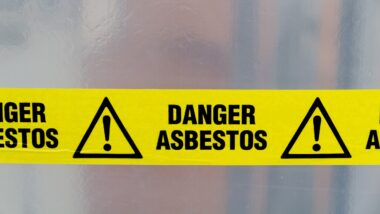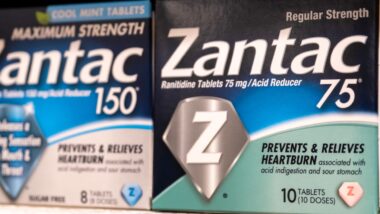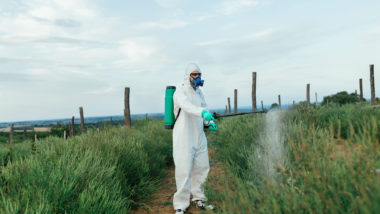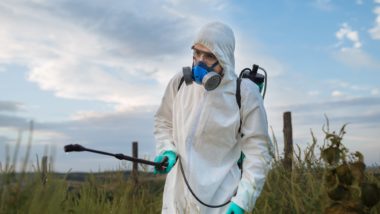Top Class Actions’s website and social media posts use affiliate links. If you make a purchase using such links, we may receive a commission, but it will not result in any additional charges to you. Please review our Affiliate Link Disclosure for more information.
Several recently published animal studies suggest that glyphosate, a popular weedkiller, might not be as safe as the U.S. Environmental Protection Agency (EPA) maintains. This new research comes amidst increasing criticism of glyphosate and Roundup, a glyphosate-containing weedkiller made by Bayer; numerous lawsuits have been filed alleging that glyphosate causes cancer. Now, researchers speculate that the chemical may affect the reproductive system.
US RTK explains that the studies indicated that glyphosate can negatively affect the reproductive system and fertility. According to the new research, these results suggest that glyphosate could serve as an “endocrine disrupter,” imitating or interfering with natural hormones produced by the body. Reportedly, endocrine disrupters have been connected to not only reproductive system issues, but immune system problems, brain dysfunction, and developmental issues.
Live Science explains that the endocrine system circulates hormones throughout the body. The system is composed of the thyroid glad, the parathyroid glands, the pituitary gland, the pancreas, as well as the ovaries and testicles. Hormones control a range of body functions, so a possible disruption to them can have a profound effect on the body as a whole.
The glyphosate health effects studies were conducted by researchers around the world, and were published in various scientific journals.
Most recently, a glyphosate health effects study published in the International Journal of Environmental Research and Public Health in August 2020 showed that glyphosate, the active ingredient in Roundup, and two insecticides — thiacloprid and imidacloprid — disrupted the endocrine system. This is possibly concerning because glyphosate, like the two insecticides, is used around the world.
Other recent studies made similar findings about the possible risks of glyphosate.
One study was conducted by Argentinian researchers, and was published in Molecular and Cellular Endocrinology. US RKT states that despite the U.S. Environmental Protection Agency’s insistence that glyphosate is safe, the research from Argentina suggests that it is not, even in small amounts. The Argentinian study examined that the reproductive issues were seen when the animals were exposed to low doses of glyphosate as well as high doses.
Reportedly, at even low doses, glyphosate could change how the female reproductive system develops. In turn, this can affect fertility, indicted the research. This effect on the reproductive tract could take place even before puberty. Reportedly, in prepubescent animals the development in the ovarian follicles and the uterus were affected.
Similarly, the research conducted in Argentina indicated that glyphosate not only affects the mother, but can affect the offspring. Supposedly, if a mother is exposed to glyphosate while pregnant, the offspring’s development could be affected.
This new information was echoed by another glyphosate health effects study published online in July in Food and Chemical Toxicology. This study suggested that glyphosate and weedkillers made from it disturbed “critical hormonal and uterine molecular targets,” in pregnant rats that were exposed to the chemical.
 Exposure to Glyphosate Found to Affect Both Male and Female Reproductive Systems
Exposure to Glyphosate Found to Affect Both Male and Female Reproductive Systems
The University of Georgia published research findings in Veterinary and Animal Science, which indicated that when consumed by livestock, glyphosate could affect both female and male reproductive systems. In this study, the animals consumed grain that contained glyphosate.
Environmental Pollution published a glyphosate health effects paper by Finnish and Spanish scientists, reporting on research that they had done to better understand the effects of glyphosate on poultry. That research indicated no effects on reproduction specifically, but did indicate that weedkillers made from glyphosate could change “key physiological pathways, antioxidant status, testosterone, and microbiome.” The researchers cautioned that only examining the short-term effects of glyphosate might not allow the scientific community to “fully capture the risks,” associated with glyphosate.
Glyphosate was also found to affect the uterine development in female lambs, said a study published in Environmental Pollution. The researchers behind this study speculated that glyphosate might serve as an endocrine disrupter in sheep, and the chemical could both affect a mother sheep and her lambs.
An Iowa State University study published in Toxicology and Applied Pharmacology showed that in mice, low-level glyphosate exposure could affect proteins present in the ovaries, and could then affect their function. The results of another Iowa State University study presented a contrast, saying that the research did not indicate that glyphosate exposure resulted in endocrine disruption in mice.
Join a Roundup Weed Killer Cancer Class Action Lawsuit Investigation
You may qualify for this Roundup cancer lawsuit investigation if you were diagnosed with one of these conditions after using Roundup:
- Non-Hodgkin’s lymphoma
- B-cell lymphoma
- T-cell lymphoma
- Chronic lymphocytic leukemia (CLL)
- Hairy cell lymphoma
See if you qualify by filling out the form on this page for a case evaluation with an experienced Roundup lawsuit attorney.
This article is not legal advice. It is presented
for informational purposes only.
ATTORNEY ADVERTISING
Top Class Actions is a Proud Member of the American Bar Association
LEGAL INFORMATION IS NOT LEGAL ADVICE
Top Class Actions Legal Statement
©2008 – 2024 Top Class Actions® LLC
Various Trademarks held by their respective owners
This website is not intended for viewing or usage by European Union citizens.
Get Help – It’s Free
Join a Roundup Weed Killer Cancer Class Action Lawsuit Investigation
For the most up-to-date information on this case, click here.


 Exposure to Glyphosate Found to Affect Both Male and Female Reproductive Systems
Exposure to Glyphosate Found to Affect Both Male and Female Reproductive Systems










